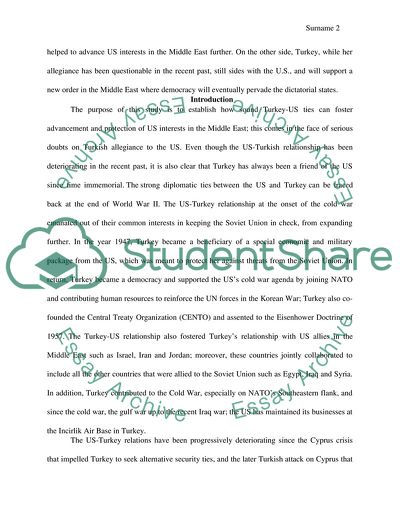Cite this document
(The US-Turkey Relations Will Foster Advancement and Protection of U.S Thesis Proposal, n.d.)
The US-Turkey Relations Will Foster Advancement and Protection of U.S Thesis Proposal. https://studentshare.org/politics/1792194-how-supporting-turkey-militarily-diplomaticlly-economically-etc-will-foster-advancement-and-protection-of-us-interests-in-the-middle-east
The US-Turkey Relations Will Foster Advancement and Protection of U.S Thesis Proposal. https://studentshare.org/politics/1792194-how-supporting-turkey-militarily-diplomaticlly-economically-etc-will-foster-advancement-and-protection-of-us-interests-in-the-middle-east
(The US-Turkey Relations Will Foster Advancement and Protection of U.S Thesis Proposal)
The US-Turkey Relations Will Foster Advancement and Protection of U.S Thesis Proposal. https://studentshare.org/politics/1792194-how-supporting-turkey-militarily-diplomaticlly-economically-etc-will-foster-advancement-and-protection-of-us-interests-in-the-middle-east.
The US-Turkey Relations Will Foster Advancement and Protection of U.S Thesis Proposal. https://studentshare.org/politics/1792194-how-supporting-turkey-militarily-diplomaticlly-economically-etc-will-foster-advancement-and-protection-of-us-interests-in-the-middle-east.
“The US-Turkey Relations Will Foster Advancement and Protection of U.S Thesis Proposal”. https://studentshare.org/politics/1792194-how-supporting-turkey-militarily-diplomaticlly-economically-etc-will-foster-advancement-and-protection-of-us-interests-in-the-middle-east.


